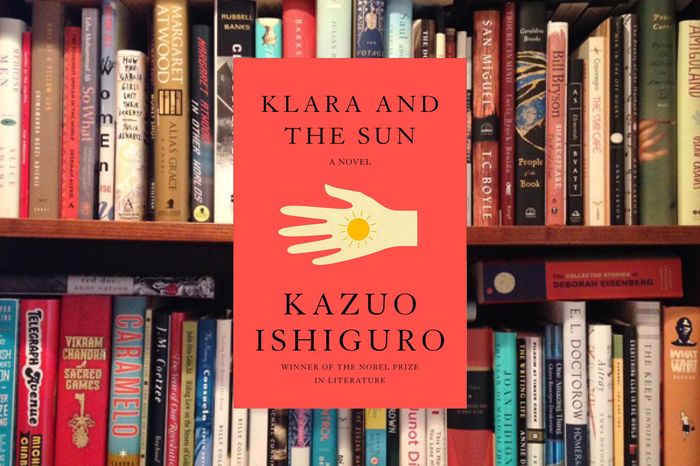The untold escapism of autobiographies
Famke Veenstra-Ashmore explores how autobiographies might be underrated reads, which give more insight into ourselves than we might first imagine.

My step-mother received a shining new copy of Elton John’s autobiography, Me (2019), for Christmas a couple of years ago. Buried under the weight and bustle of everyday life, I would often see it abandoned on a coffee table or neglected on a bed-side table – but never in a pair of hands. Each time I passed it, I became more intrigued by its contrasting cover, depicting a young Elton, shadowed in monochrome, but adorned with rainbow coloured glasses – evidently a metaphor for the two very conflicting personas held within one person.
Wanting a break from the winding passages of George Elliot during a particularly long lockdown reading session, I recalled its attractive image, and wondered if it would provide me with the relief I was seeking. Naturally, I expected the story inside to match the glitziness of the glasses on the cover and, in turn, the glamour of the pop-star himself. Parts of the book certainly shone with the excitement of stardom, however, I found it was just as coloured by the heartache and difficulties that had an equally profound influence on him. Not having known much about the star before reading, I suddenly felt a great sense of personal intimacy with him now having visualised his past, empathised with his ambitions, and felt deeply touched by his story’s bittersweet frankness.
“How do other people’s experiences of life affect our own, and why are we so drawn to exploring them?”
Yet, his subtle intertwining of highs and lows repeatedly brought me back to that cover – the black and white figure, the notion of rose-tinted glasses. How do other people’s experiences of life affect our own, and why are we so drawn to exploring them? Contemplating detail provoked further reflection upon the genre that Elton had chosen to write in, and the purpose of these types of texts. I knew innately that they weren’t purely intended to preserve the memory and legacy of an individual. Like any kind of fiction, they fuse reality and imagination, originality and influence, producing a type of escapism that is just real enough to remain intimate.
Autobiographies have certainly experienced an evolution in recent years; the genre has been broadened so far that the lines between fiction and reality have been blurred, as well as those which define its content. The traditional memoir – often reserved for high-profile politicians and well-respected visionaries – has been completely transformed concomitant to our evolving perception of time and life and also, more integrally, whose lives we want to give parts of our own time to. This still includes the archetypally popular world leader and historical figures, but space has now been devised for sports stars, TV personalities, and even children. Lengthy, formal recapitulations of events have evolved into a concept which doesn’t conform to a single medium anymore. To me, this is so exciting – lives and experiences are now being portrayed with a multiplicity which is inherent to life itself.
Being interested in the particular person you’re reading about seems like a requirement. However, upon reflection, this seems superficial. As with any time throughout history, we are desperate for a distraction from mundanity. And escapism, humanity’s favourite coping mechanism, has already dominated conversations about surviving lockdown. After all, there has always been an insatiable demand for original stories, and what is more original than a story chronicling an individual’s life when there are so many of us? Autobiographies can be just as engaging and escapist, as any other first-person narrative, but often reach out to us beyond their narrative frames.
“Yet both were audaciously hopeful, and even though their recollections were very much real”
There was something particularly damning about reading Hillary Clinton’s recount of the 2016 presidential election, What Happened (2017). The title is suggestive of Clinton’s style; she writes under no false pretences or careerist veneer. Reading it three years after its publication, with Donald Trump close to the end of his tenure, provided me with an entirely distinct perspective on the brutality of the election, but furthermore deeply frustrated me in its accurate predictions for Trump’s term. Clinton’s final message, one urging us to “keep going”, was strongly felt by me in both a literal and figurative sense – I went back and read the rest of her memoirs!
While inherently acting as preservations of the past, the genre also serves to advise and inspire us in the present and future. President Obama’s memoir, A Promised Land (2020), was my current read around the time of the 2021 insurrection of the Capitol. His reflections on his time as a leader, coupled with a lingering fear of America’s future, were uncanny and these notions echoed in my mind as I compared his articulations to the vitriolic figures on my television screen. These scenes also manifested the trepidation of Michelle Obama’s Becoming (2020), which while a deeply insightful and heartwarming read, made no attempts to conceal the difficulties of being First Lady, and her own concerns for the country she had helped lead. Yet both were audaciously hopeful, and even though their recollections were very much real, losing myself in their worlds and words was easy – as their life experiences are so distinct, rendered almost fictional to me – and certainly escapist.
A stagnant world has provided an inevitable stagnancy to our own lives. Our perception of time, life, and its progression has been completely altered. Amongst this existentialist dread, there has been a vast evaluation on how we use the time in our lives which we have left. Tracing back decades of someone’s life – becoming privy to each tribulation, celebration and downfall – has really helped put everything which has felt disordered and uncertain into perspective. By facilitating our entry into the past of someone else’s life, by adopting the lens of Elton John’s cover, autobiographies allow us to consider what we are doing in our present, endowing us with a renewed frame of reference.
 News / Clare Hall spent over £500k opposing busway 24 December 2025
News / Clare Hall spent over £500k opposing busway 24 December 2025 Comment / The ‘class’ of Cambridge24 December 2025
Comment / The ‘class’ of Cambridge24 December 2025 News / Eight Cambridge researchers awarded €17m in ERC research grants27 December 2025
News / Eight Cambridge researchers awarded €17m in ERC research grants27 December 2025 News / Caius mourns its tree-mendous loss23 December 2025
News / Caius mourns its tree-mendous loss23 December 2025 Comment / League tables do more harm than good26 December 2025
Comment / League tables do more harm than good26 December 2025










